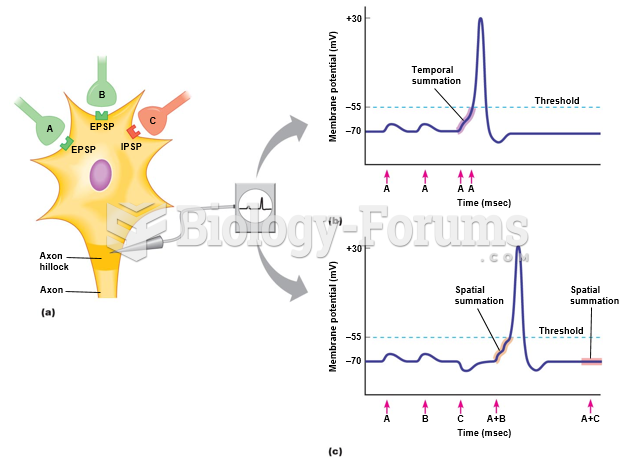|
|
|
In the United States, an estimated 50 million unnecessary antibiotics are prescribed for viral respiratory infections.
Ether was used widely for surgeries but became less popular because of its flammability and its tendency to cause vomiting. In England, it was quickly replaced by chloroform, but this agent caused many deaths and lost popularity.
About one in five American adults and teenagers have had a genital herpes infection—and most of them don't know it. People with genital herpes have at least twice the risk of becoming infected with HIV if exposed to it than those people who do not have genital herpes.
Approximately 25% of all reported medication errors result from some kind of name confusion.
Liver spots have nothing whatsoever to do with the liver. They are a type of freckles commonly seen in older adults who have been out in the sun without sufficient sunscreen.
 Horses too young to be ridden are trained to accept a halter, taught basic skills, manners, and beco
Horses too young to be ridden are trained to accept a halter, taught basic skills, manners, and beco
 Young adults increase in self-esteem between the ages of 18 and 25, according to this longitudinal s
Young adults increase in self-esteem between the ages of 18 and 25, according to this longitudinal s
 When parents actively support higher education, their children achieve more in their future careers.
When parents actively support higher education, their children achieve more in their future careers.




